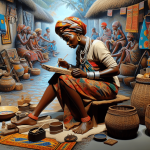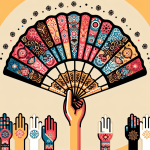In “Five years on the road in Africa: how Lerato Mogoatlhe became a travel writer,” South African journalist Lerato Mogoatlhe shares her incredible journey across the continent, which unexpectedly lasted for five years. In her book, Vagabond: Wandering Through Africa on Faith, Mogoatlhe recounts the experiences that shaped her understanding of Africa’s diverse cultures and landscapes. From her childhood fascination with African music videos to the personal risks and rewards of traveling solo, Mogoatlhe’s story offers a unique perspective on being black, queer, and a woman in Africa. Through her travels, she challenges stereotypes and celebrates the beauty and complexity of the continent.
The Journey Begins
The journey of Lerato Mogoatlhe, a South African journalist, began with a three-month trip to West Africa. Little did she know that this trip would eventually turn into an accidental drift across the entire continent for five years. Mogoatlhe’s experiences on the road, and the insights and stories she gathered along the way, are chronicled in her book, Vagabond: Wandering Through Africa on Faith.
Early Influences
As a child growing up in Pretoria, South Africa, Mogoatlhe experienced Africa through literature and music. Music videos became her window into the continent, igniting a desire to explore and experience the sights, sounds, and flavors of Africa for herself. Later, during her time in Johannesburg, university friends from various African countries further opened her eyes to the richness and diversity of the continent, challenging the stereotypes and perceptions she had grown up with.
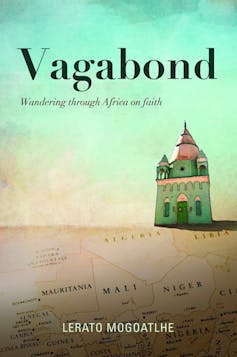
The Significance of the Title
The title of Mogoatlhe’s book, Vagabond, carries a double meaning that speaks to her journey and the freedom she found on the road. Historically, the term “vagabond” has been used to disparage and control indigenous people, particularly during colonial times in South Africa. Despite the negative connotations, Mogoatlhe embraces the term as a symbol of freedom and adventure. Being a vagabond represents a sense of aimlessness and provides an opportunity to wander without a fixed abode, a concept which resonates deeply with her experiences on the road.
Travel as a Form of Expression
For Mogoatlhe, travel serves as a form of expression, especially in the context of black freedoms and cultural identity in South Africa. Through her travels, she had the opportunity to experience being black and African without disguising or denying herself to fit into societal expectations. By embracing her cultural identity and sharing her experiences, Mogoatlhe promotes the importance of cultural expression and celebrates the diversity and richness of Africa.

Personal Risks and Rewards
Traveling, especially as a solo traveler, comes with its own set of risks. Mogoatlhe recounts encounters with conmen in Senegal and repelling attackers in Ethiopia. However, despite the challenges, she recognizes the rewards and opportunities that come with travel. The thrill of exploring new places and turning fantasies into reality fuels her desire to live life to the fullest, despite the obstacles she may encounter. As a black, queer woman, Mogoatlhe’s travel experiences challenge stereotypes and show that there is more to being queer in Africa than violence and fear.
Contribution to Travel Literature
Vagabond adds to the growing body of travel literature by offering a diverse perspective on African travel. Mogoatlhe’s experiences and stories shed light on the experiences of queer African travelers and challenge the clichés and stereotypes often associated with Africa and Africans. The intimate and authentic narratives in Vagabond provide a refreshing and accurate portrayal of the continent and its people.
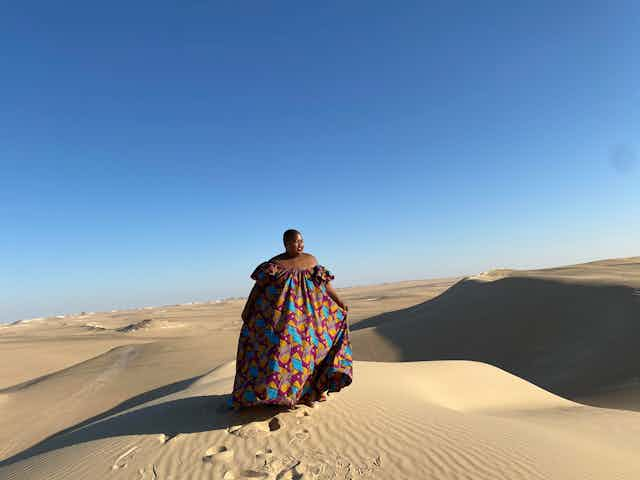
Adventure and Reflection
Through her writing, Mogoatlhe takes readers on a journey through the scenic and human wonders of Africa. Her stories explore both the beauty and the harrowing aspects of the continent, such as her visits to Rwanda’s genocide memorials. By addressing these difficult topics, Mogoatlhe hopes to promote a deeper understanding and appreciation of Africa, beyond the surface-level perceptions often portrayed in mainstream media.
Writing Africa Differently
Mogoatlhe’s book is an inspiration for a new narrative of Africa, one that goes beyond the prevalent focus on war and conflict. By celebrating life, creativity, and innovation, Mogoatlhe redefines the narrative of Africa and showcases the beauty and resilience of its people. Through her writing, she rekindles a sense of home and belonging, inviting readers to see Africa in a new light.
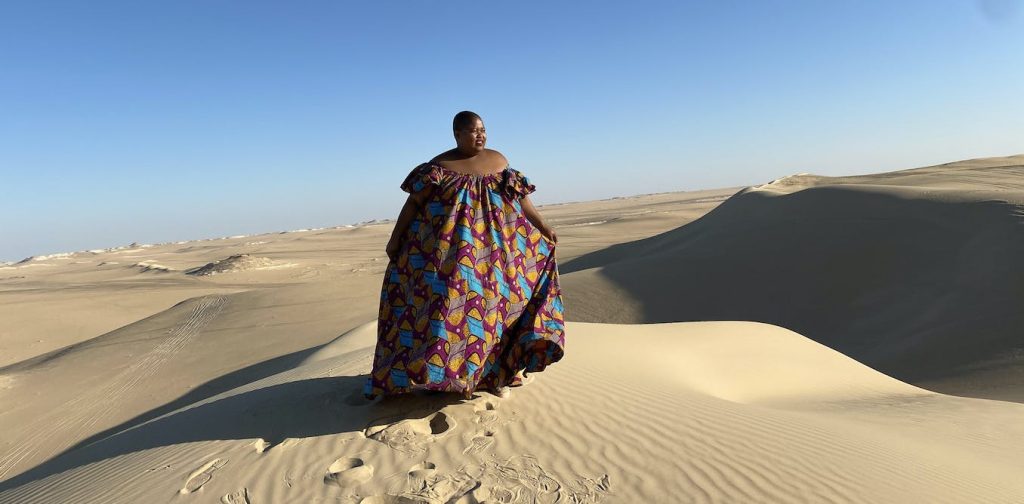
The Power of African Literature
African literature plays a vital role in challenging stereotypes and shaping perceptions of the continent. Mogoatlhe’s book contributes to this by presenting a fresh and authentic perspective on African travel experiences. African writers have the power to promote diversity and representation in travel writing, providing a more accurate and nuanced understanding of Africa and its people.
Empowering Women and Girls
As a black, queer woman in the field of travel writing, Mogoatlhe serves as a role model and inspiration for young women and girls. Her experiences on the road defy societal norms and expectations, empowering others to embrace adventure and explore the world. By breaking barriers and sharing her stories, Mogoatlhe encourages women and girls to follow their dreams and challenge the limitations that society places upon them.
In conclusion, Lerato Mogoatlhe’s book, Vagabond: Wandering Through Africa on Faith, offers a compelling narrative of her five-year journey across the African continent. Through her experiences, she challenges stereotypes, celebrates cultural identity, and invites readers to see Africa in a new light. Her contribution to travel literature is significant, as she promotes diversity, representation, and a deeper understanding of Africa through intimate and authentic storytelling. Mogoatlhe’s work empowers and inspires women and girls to embrace adventure and live life on their own terms, while also redefining the narrative of Africa beyond war and conflict.









